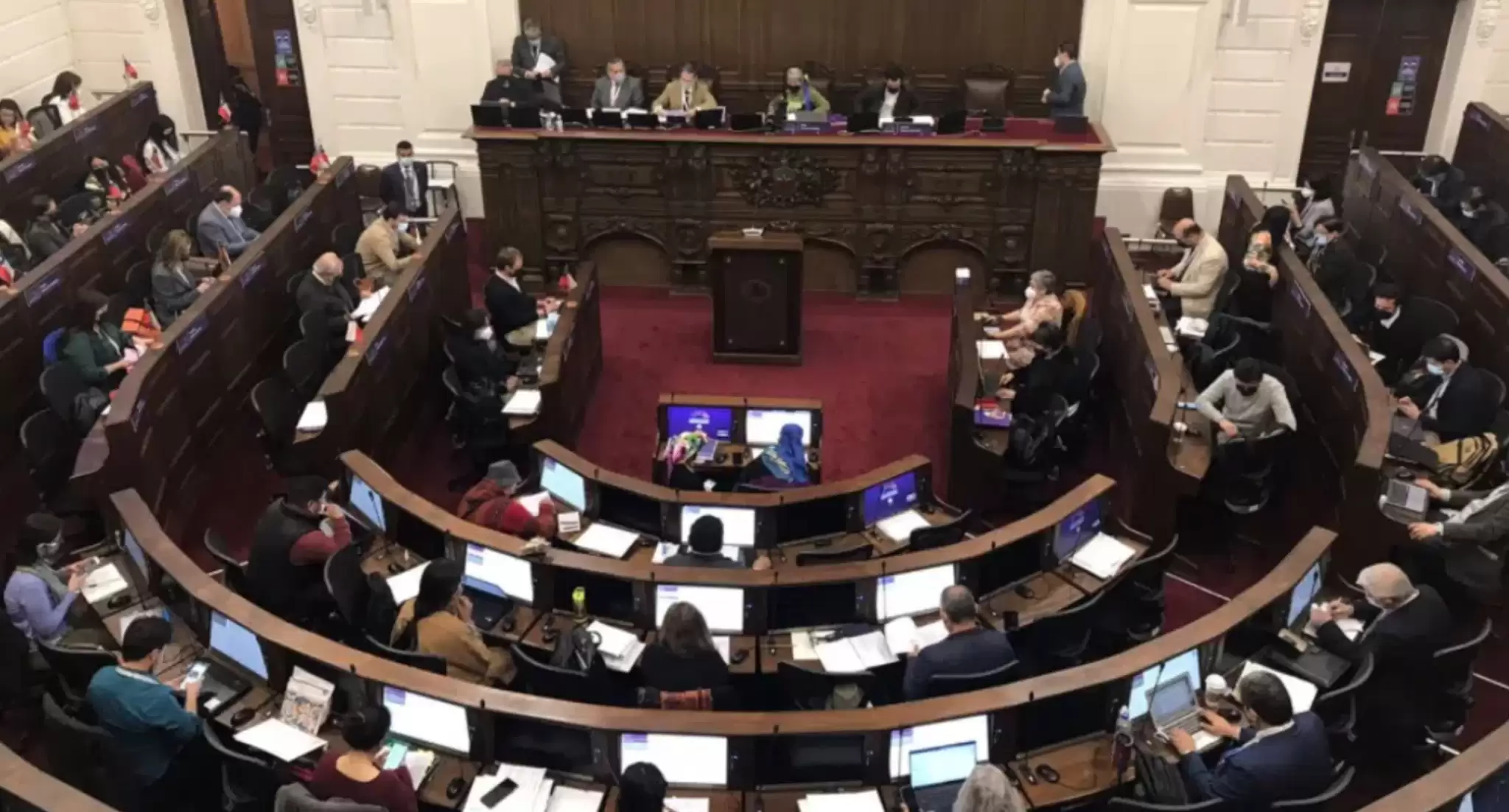An unexamined aspect of the debate on the proposed new Constitution in Chile is the tension between two opposing metaphors in political life. Linguist George Lakoff argues that much of politics revolves not around a rational exchange of ideas, but around conflicts between different moral-ethical values regarding how to constitute the family.
On the one hand, much of conservative philosophy can be summarized by the metaphor of the strict father. From this perspective, a good father imposes his authority in order to instill personal discipline in his children. His rewards and punishments impose limits, and generate respect for authority in the first instance, but eventually also for others. A good State does the same, punishing transgressions and rewarding the self-discipline of its citizens, for example, through a strong degree of autonomy in the personal and economic spheres.
On the other hand, much of the liberal progressive perspective can be summarized through the metaphor of a loving mother. Lakoff’s expression in English is nurturing parent, which has no gender or precise translation into Spanish (a language that, in turn, forces the gender distinction), but the feminine sense of protection, as opposed to the masculine sense of discipline, is clear. From this perspective, both in the family and in political life, the fundamental values are empathy, justice, and protection, much more than discipline or punishment.
These metaphors of different types of families are contrasted in political life. For the strict father who seeks to raise responsible individuals with a high degree of autonomy, it is immoral to reward them for something they have not earned through their own effort or to take away something they have earned through their own effort. For the caring mother, it is important that both children and citizens treat each other fairly, which often requires correcting historical injustices and discriminations between classes, sexes, minorities, or other groups. Allowing discrimination or suffering to continue is immoral.
Understanding these metaphors, is there any doubt about what is at stake in Chile? The 1980 Constitution, even with all its modifications, is a faithful representation of the strict father, whose maximum expression is the figure of Pinochet. The new Constitution proposed by the Constitutional Convention exemplifies the values of the loving mother. The very design of the Convention (with gender parity and reserved seats for indigenous peoples) seeks to correct historical injustices, goals that are incorporated in the text of the constitutional proposal. It is striking that all the former presidents who have criticized the new text are men, while the former president who has strongly declared her support for the new Constitution is a woman.
Michelle Bachelet’s recent statements are also striking for having emphasized a key dimension in politics: the emotional. Much of the debate so far has focused on the merits of the text from the rational, referring to its different articles, to defend or criticize them, depending on the point of view.
But the Apruebo side would do well to follow the path marked by former President Bachelet in her reference to Pablo Milanés’ song, that the constitutional proposal “Is not perfect, but it comes close / To what I simply dreamed of.” A simple, powerful, and deeply emotional poetic allusion. And in her July 23 letter, Bachelet makes similar allusions, writing, “As a woman I see … that decades of injustice can be left in the past,” and that Chile is a united country that “calls to be protected by the same solidarity.”
It would also help Apruebo to understand that, while it is legitimate and necessary to criticize Pinochet’s long historical legacy, something the new Constitution seeks to finally bury, the metaphor of the strict father not only remains valid with strong roots but has a valid aspect in terms of instilling personal responsibility. Lakoff also argues that conservatism understands better the emotional dimension of politics than progressivism, which often falls into endless debates from the rational.
Michelle Bachelet’s statements are not only a criticism of Rejection, but also a call for attention to Approval; to better emphasize the emotional dimension, beyond the rational discussions anchored in readings of the text that have characterized a significant part of the campaign so far. Although the former president has not put it this way, this implies not only to allude to the yearnings and hopes of leaving behind the injustices of the past, but also to better understand and validate the fear of possibly profound changes.
For its part, the Rejection side would do well to be more transparent about its own fears, a key emotional motivation in much of its campaign. That fear is sometimes expressed as anger or even hatred, but naming the emotions helps control them. It would also help to better understand that the yearnings for justice to correct long-standing historical discriminations in Chile are not irresponsibilities from the October 2019 social outburst, that seek to reward those who do not deserve it, but are anchored in equally deep, legitimate and valid ethical foundations. With all its imperfections, as Michelle Bachelet recognizes, the constitutional proposal comes close to the dreams of an expressive part of the country.
Political life, like family life, is not easy. The conflict between different perspectives is often acute. But fathers and mothers can also reconcile. Doing so does not necessarily mean returning to the male and female roles of a traditional family. A metaphor is just that, an ideology that can be translated into different ways in practice. Both men and women have heads and hearts. Men have been great fighters against injustice, and women, defenders of discipline and personal responsibility.
For reconciliation, it is necessary to understand not only what is behind the positions of the other side, their ethical and moral values, but also what Michelle Bachelet points out and what figures such as George Lakoff propose: that politics is based on the emotional as well as the rational.
Translated from Spanish by Janaína Ruviaro da Silva













